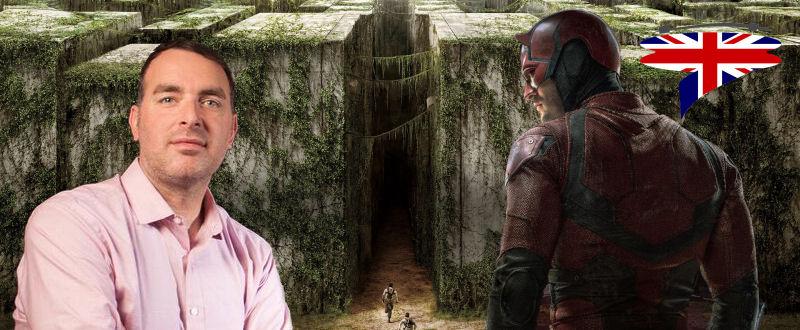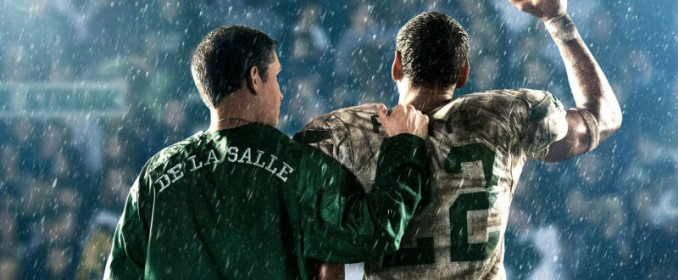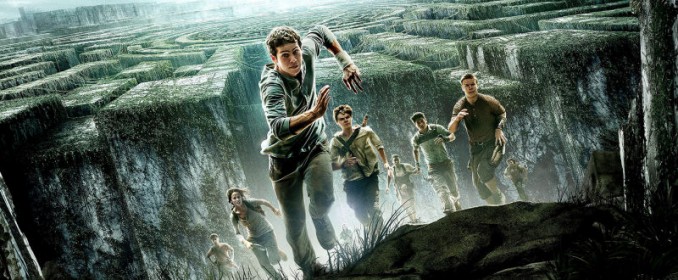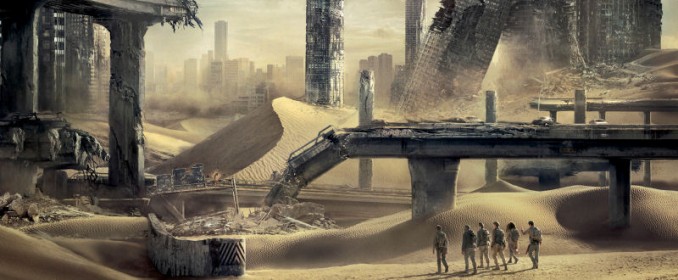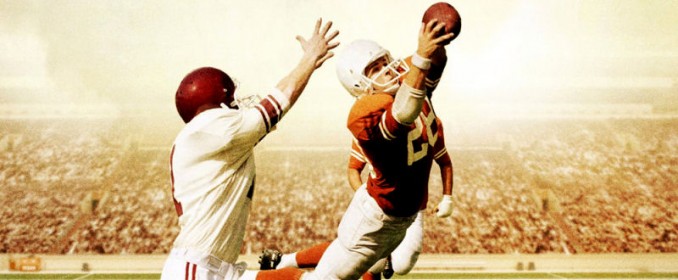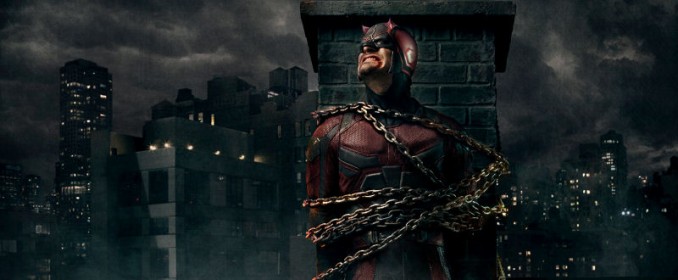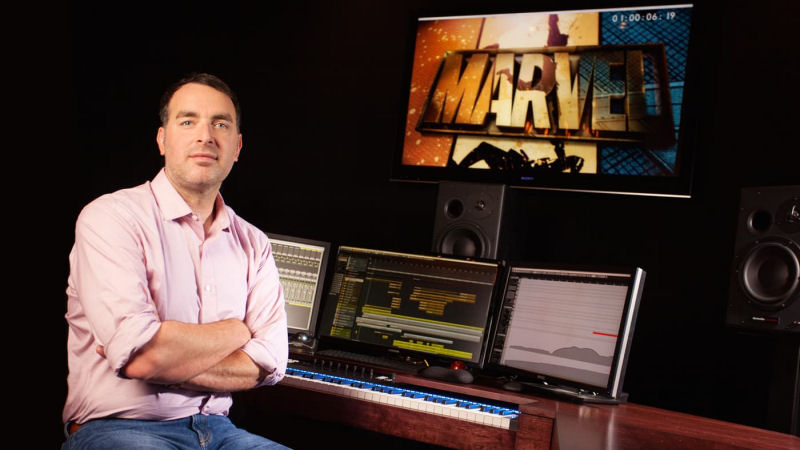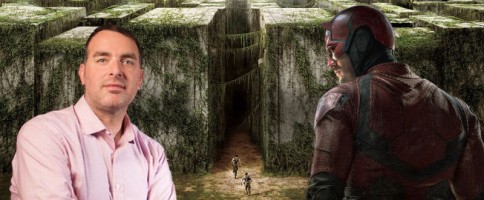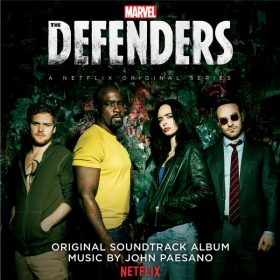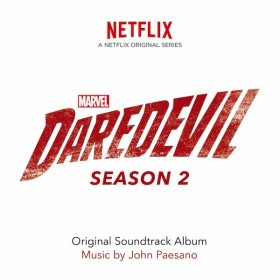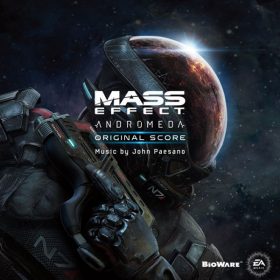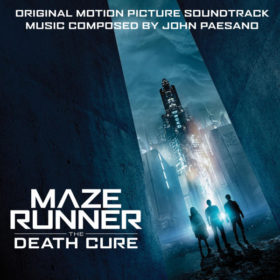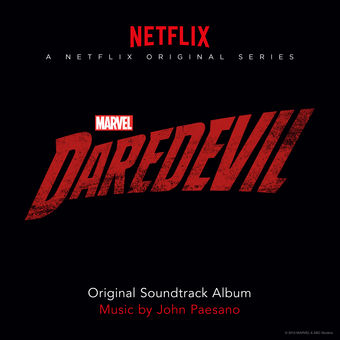![]() CLIQUEZ ICI POUR LIRE LA TRADUCTION FRANÇAISE
CLIQUEZ ICI POUR LIRE LA TRADUCTION FRANÇAISE
After his studies, first at the Paris Conservatory with Sally Dow Miller, then at Berklee College of Music in Boston, where he followed a course of composition for film and television, John Paesano started professionally in 2007 by composing music for Ben 10: Secret Of The Omnitrix for Cartoon Network. He then composed the scores for several direct-to-video movies (released immediately on home video formats rather than a theatrical release or television broadcast): Another Cinderella Story, Superman/Batman: Apocalypse and SWAT: Firefight (sequel to the S.W.A.T. movie released in theaters in 2003). He also took over from John Powell on the Dragons animated series produced by DreamWorks to extend the success of How To Train Your Dragon in theaters. He began his career on the big screen in 2014 with the sports drama When The Game Stands Tall, before reaching fame by composing the score for The Maze Runner, the first installment of the saga adapted from James Dashner’s books, followed in 2015 by The Maze Runner: The Scorch Trials. Paesano then revisited the world of sports movies with My All American, while initiating a partnership with Netflix and Marvel to create the musical world of the Daredevil series, a partnership that has been extended for the second season. He will return in 2018 with The Maze Runner: The Death Cure to musically conclude the trilogy.
Can you talk about your first feature film score for When The Game Stands Tall?
That project originally came to me right before The Maze Runner. It was an American sports film. When I first started off, I was going to do it purely orchestral, but then as I got into the film, I noticed that it needed a little bit more energy than what the orchestra could provide. It was the palette that, to fit to the picture, needed to be more of a hybrid combo sound. We recorded an eighty piece orchestra and then we did soloists as well. There were definitely a couple of influential film scores that the director brought with him as ideas that he wanted for the score, and it derived from a whole bunch of things. There’s a lot of American football being played: how were we going to attack all this football without making it be mundane? The way that I did, as far as the football games, really had to do with the instrumentation, the energy that the music was providing. I incorporated a lot of marching band music into the score as well: that helped me give variety to some of those football games.
It was a challenging film because anytime you have a film with repeated sequences that are similar, it’s hard to make that stuff interesting as the film goes on. Sports films tend to be challenging in that way because you have to tell the story through music. I mean, there are basically montages of football games and anytime we have a montage, it relies heavily on music. And there’s a million different ways you can score sports films… It is its own genre in its own right, just as animation is, just as sci-fi is, where sports is generally the action of the film, unlike a movie like The Maze Runner, which is so centralized to a different type of action. Sports action is almost closer to animation than it is, per se, something like a Maze Runner action film. It’s also a very emotional film, very lyrical, so even though it is a movie that centers on football, it really is a drama that has football incorporated into it.
The Maze Runner was another challenge. How did you approach it?
The one benefit that I had is that I was brought into the scoring process at such an early stage. I got hired right at the time they were starting principal photography, so I had a lot of time to experiment and figure out almost what wasn’t going to work before I could figure what was going to work for the film. That’s actually a common flaw that happens with Hollywood films, where they bring in a composer so late in the process, they might only give him two months, two and a half months, to score the entire film. You know, back in the day, guys would have a longer time, like when John Williams got hired to do Star Wars… And, because the production process took a much longer time than it does now, they allowed for that in the creation process of the score. Now, with all the technology, they don’t think about the writing process and what goes into that, and how you have to work through things that don’t work before you find the voice of the film.
The Maze Runner was quite a unique situation: it was definitely a Hollywood film, but I was brought into the process very early, so it really allowed me to put some thought and effort into how I was going to attack the film, more from a functional aspect than from a musical aspect. It isn’t a highly thematic, operatic, highly contrapuntal score, but a film score that was created to work really tightly with the picture and give a feeling of mystery. The score is more functional than musical. And that’s how scores should be: when you’re writing for films, it’s not about writing concert pieces, it’s about writing a piece of music that fits a scene. I think that’s one of the tricky parts of film scoring, what makes it unique to other aspects of music. You’re writing music not based on the music itself, you’re writing a piece of music based on how it’s complementing the film. That process can take a little bit of time. So, as composers, we always want to challenge ourselves and write very contrapuntal music and highly harmonically rich music, but sometimes you have to say to yourself: « Well, maybe the single piano note works better in a scene than the fully realized orchestral sound ». There are just so many different things you have to check as you’re working through this process. It takes time to figure out how that’s going to work. It was nice having some extra time, it’s not a common thing. When we did The Scorch Trials, the second one, the production process was much tighter. Having a little bit of knowledge of the first one, working with the same director over for a second time, allowed it to be a smooth process. But those production schedules can get tight and they really can challenge the composer.
For The Scorch Trials, you had to revisit the same world while making it slightly different?
Like I said, the challenge was that the first one wasn’t a highly thematic film score. It was more of a feel and a sound. I always wanted the story to be told through the main character’s eyes, Thomas. When the film starts off, Thomas wakes up in this place and he has no memory of his past life, where he came from, what he did. As the film progresses, he slowly learns about his past life and how he ended up in this place. I always wanted the score to stay from within Thomas’s perspective, so when the score starts off, it is a little unsure of itself, it’s barren. It’s utilizing instrumentation that we see in the surroundings of the area, whether it’s bamboo claps or the wind blowing through the trees. I kept it very natural and organic. Then, as Thomas learns of this greater, more technological advanced world outside the walls of the maze, the score grows with that and we end up hearing more of a hybrid electronic sounds. A bigger sound starts to emerge out of where we started, and then when we get to The Scorch Trials, it’s a continuation of that sound. Being able to have the amount of time to think about how we were going to grow these things was very helpful too, as well as knowing that I was going to do the second one, knowing that my director was going to be the same… So, we envisioned these Maze Runner movies as one big movie broken up into three parts. Especially when you have a score that’s not extremely thematic, it’s a little trickier sometimes, trying to figure out how you’re going to tie all this stuff together and making it feel as of one world.
It’s also tough because these days, composers have so many different sounds at their fingertips that they’re able to utilize. When John Williams wrote Star Wars, they had the orchestra and that was it. Guys worked by writing different melodies and utilizing the orchestra, and they had to figure a way to make it unique to themselves, so melodic content became such an important aspect of older film scores. But these days, we have such a different palette of sounds and textures that a score can be thematic without being excessively melodic. It gives you another way to approach a film. I don’t think guys necessarily don’t write melodic film scores as much as they used to because lack of knowing how, I just think films these days open themselves up more to a different sound… For example, I can’t hum you the theme of Inception, but if I heard it I would know right away that’s Inception. There’s a lot of scores like that and I think The Maze Runner falls more into that category. That being said, melody and theme and harmonic richness brings a character to a film. We wanted not to have it completely barren of that, it’s just not as visibly notable in The Maze Runner as it is in some other films. We do have little motifs and things that we bring back, that we were able to utilize in the second film as well.
Your last movie project is a film called My All American…
It was written and directed by Angelo Pizzo, the guy who wrote two of the greatest American sports movies ever, Rudy and Hoosiers, and he used Jerry Goldsmith on these two films. My All American is a complete departure from The Maze Runner, it is all orchestra, all super-thematic, with one strong theme that runs throughout the whole entire film. The film lends itself to that type of writing, unlike other kinds of movies. It’s actually funny, when we started off with The Maze Runner, we had this great idea because Wes Ball, the director, is a huge John Williams and Steven Spielberg fan, he’s very knowledgeable when it comes to composers and film scoring, and he really wanted his film and the score to be like Jurassic Park. This is even before he shot a frame of it. I said: « Fantastic, I love Jurassic Park! This is a great direction, it all takes place outdoors, and we replace the dinosaurs with big walls… » It seemed like it would all work, it seemed like it would be perfect.
Then, when we started the film scoring process and when I started throwing music up against frames, we realized quickly that Jurassic Park just wasn’t going to work. It wasn’t giving us that mystery and that intense feeling that we needed to have. We had to abandon that issue. You always have these preconceived ideas of what you’re going to do for a score, but until you got to throw music against picture, you really don’t know what’s going to work. The film will always tell you where you’re going ahead. The Maze Runner was a good example: the series has been a really great learning tool for me, being a younger guy in the business, and learning my way on how to go about and how you gonna learn from that whole entire process. You’re never done learning: a guy like John Williams is still learning things.
With Daredevil, you got your chance to explore the Marvel universe. What did you have in mind?
In my palette, I have a very Marvel sound, I can do the big superhero heroic things. When I got hired on the project, I was like: « Great, we’re going to do the whole Marvel sound », and they were like: « We want nothing to do with the Marvel sound at all! » The showrunner really wanted to make Daredevil a completely different world, in Hell’s Kitchen, New York. He wanted it to be dark, gritty and wry. He didn’t want it to be highly orchestral, and we really had to build a world from scratch. It was really interesting because I worked on Daredevil right after I finished the first Maze Runner, and I was gearing myself up to go into the TV world. I’ve done network television before. Network television is a different animal. Films are a different animal. But the streaming services, like Netflix, like Amazon, like HBO… The shows are a hybrid between both worlds. Just because you’re aren’t restricted obviously by censorship, you can have language, you can have violence, you can have nudity, so it opens up that world to the creative a little more, to make their stuff a little bit racier and a little bit more intense, which was very helpful for a character like Daredevil. The second thing that ties you to the film world is that when they shoot these things and release them, they do them all at once. It’s all rapid fire, almost like taking a film and breaking it up into thirteen parts. So the production process is almost a little closer to the film process.
Instead of writing episodic television from week to week, I was really able to handle it like a film score and give it an arc. Now that we’re going into the second season, I’m able to do the same thing as I did with Maze Runner. In season one, Daredevil isn’t wearing his suit, he’s in street clothes. He’s got kind of a suit, but it’s not the superhero suit. On the last episode of season one, he reveals his suit, and now, the music can take a step up as we get into season two. Again, I always try to look for an overall growth of a film score versus today’s technology, where it’s so easy to start writing a piece of music and compartmentalize every single scene. I think scores suffer because of that. It’s just the nature of how you write these scores with a computer. You open up your computer: « Okay, this is 1M1 and we’re going to write this scene with this music », instead of taking a step back, viewing the film or the TV project as a whole and giving it an arc and a place where this score can go from week to week. Or, if it’s a film, making sure that you’re giving it some sort of general arc throughout to take the viewer on a ride. It was some of my training: I worked for some older guard guys. That was one thing they had back in the day: they didn’t have computers to write scores, they did it with paper and pencil and they really had to take a step back and think of a score as a whole living organism. I try to do that too when I get into writing a lot of my stuff. It’s definitely a trade from the older guard that I think is important to foster and bring through.
Interview conducted on 24th October, 2015 by Olivier Desbrosses & Stéphanie Personne
Transcription : Milio Latimier
Thanks to the Ghent Film Fest team





